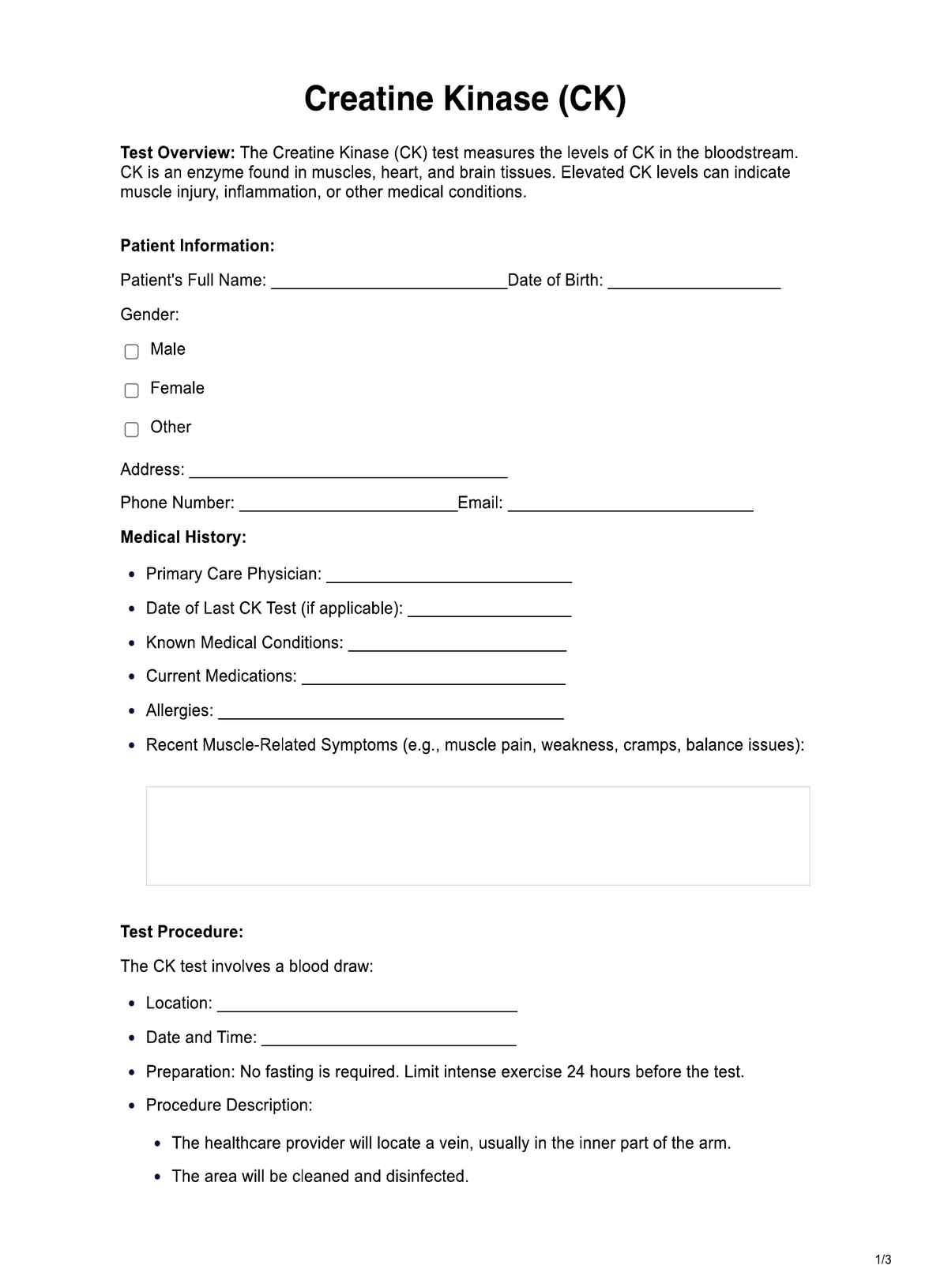Creatine Kinase Tests are typically requested by healthcare professionals, including primary care physicians, cardiologists, rheumatologists, neurologists, and emergency medicine physicians. They may order the test based on a patient's symptoms, medical history or as part of routine health assessments.

Creatine Kinase
Discover the significance of the Creatine Kinase Test with a detailed example. Download a free PDF guide on Creatine Kinase and its clinical applications.
Creatine Kinase Template
Commonly asked questions
Creatine Kinase Tests involve drawing a small blood sample from a patient's vein, typically in the arm. The blood sample is then sent to a laboratory for analysis. The levels of various CK isoforms (CK-MM, CK-MB, CK-BB) are measured, and the results are interpreted to diagnose or monitor medical conditions related to muscle, cardiac, or neurological health.
The actual blood draw for a Creatine Kinase Test is a quick procedure, usually taking less than five minutes. However, the total time for obtaining results may vary. In most cases, you can expect to have your Creatine Kinase Test results within one to two days. However, depending on the specific laboratory and testing circumstances, it could take longer. Your healthcare provider will provide a precise timeline for receiving your results.
EHR and practice management software
Get started for free
*No credit card required
Free
$0/usd
Unlimited clients
Telehealth
1GB of storage
Client portal text
Automated billing and online payments











